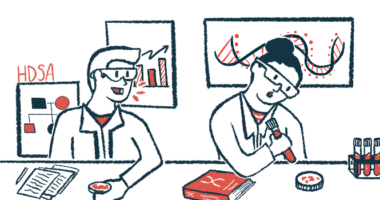Caregivers of Huntington’s Patients Voice Frustrations with Doctors and Health System

Caregivers of people with Huntington’s disease describe themselves as invisible patients in a healthcare system they are profoundly disappointed with, according to a study in the journal Psychiatra Polska. While the study was done in Poland, similar findings in both the U.S. and U.K. indicate that changes in medical education and healthcare systems are needed to better help both Huntington’s patients and their caregivers.
The caregiving burden and quality of life of people caring for family members with Huntington’s disease is a relatively well-studied domain. But few researchers have focused on how caregivers interact with healthcare services, an issue that researchers at Poznan University of Medical Sciences recently explored.
People included in the study,“Family caregivers’ experiences with healthcare services – a case of Huntington disease,“ were in 80 percent of the cases the primary caregiver of the patient. Most were between the ages of 50 and 70, and some cared for more than one family member, as several, including children, had developed the disease. The majority of the patients, 72.7 percent, were in an advanced disease stage.
During interviews with the 55 caregivers, a number of themes emerged. Caregivers described a widespread lack of knowledge about Huntington’s disease among physicians and other healthcare staff, including neurologists, and having to turn to alternative sources for information about causes, symptoms, prognosis, or treatment options.
Carergivers noted that the lack of knowledge among treating physicians often reduced the therapy to psychiatric drugs, and they found poor access to specialists and genetic counseling particularly disheartening. Genetic testing most often did not include options for counseling or psychological support, either for the patients or the caregiver.
In addition to the poor knowledge among healthcare professionals, caregivers also complained about the lack of emotional support, and of being completely ignored by physicians when accompanying family members.
Healthcare system shortcomings often placed an extra burden on caregivers, who stated that the poor quality of care led to extra costs for rehabilitation, diets, and therapies. Understanding and support from governmental and social institutions were also rated very low.
Caring for a person with Huntington’s disease can differ from other chronic diseases in many aspects. Huntington’s frequently strikes at relatively young ages, and the hereditary nature of the disease makes it likely for a caregiver to have several family members to care for, while living with the worry of also being affected.
The authors cited several other studies from the U.S. and U.K., or other countries considered to have a better quality healthcare, where the situation for caregivers was similar. The study clearly shows the need to better educate physicians and other healthcare professionals about Huntington’s disease and its impact on both patients and their caregivers.






